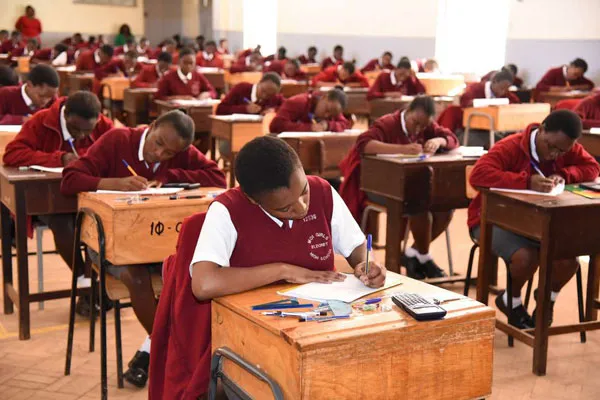Factors Affecting Students’ Performance in Math and Science
A recent report by the Association for the Development of Education in Africa (ADEA) has highlighted several factors contributing to students’ poor performance in mathematics and science subjects.
Among the identified issues are inadequate school facilities, insufficient parental support, poor teacher pedagogical practices, and a lack of Science, Technology, Engineering, and Mathematics (STEM) teachers.
Other challenges include students’ lack of interest, insufficient funding, a rigid STEM curriculum, and a lack of student mentorship.
The report, titled “Situational Analysis on the Status of STEM Education at Secondary School Level in Africa,” was conducted across nine countries: Angola, Botswana, Namibia, South Africa, Kenya, Rwanda, Uganda, Ghana, and Morocco.
The study involved 185 secondary school teachers, 65 principals, 36 education officers, and 17 senior education officials at Headquarters.
As the country prepares for the rollout of the Competency-Based Curriculum (CBC) in secondary schools, the first cohort of CBC students is currently in Junior Secondary School, Grade 8, and will join senior secondary schools in 2026 for Grade 10.
At this level, students will need to choose subjects to specialize in based on their future career aspirations.
On Wednesday, the Ministry of Education projected that approximately 60 percent of CBC learners would join the STEM pathway in senior secondary school.
This projection implies that around 600,000 students will be on the STEM pathway when CBC reaches Senior Secondary School in 2026.
Elijah Mungai, the director of scholarships at the Ministry of Education, noted that this shift would create a more productive population, instrumental in achieving the country’s Vision 2030.
In Our other News: TSC Teacher Registration in Kenya: Qualifications and Process
The survey found an increase in students taking STEM-related subjects in secondary schools. School principals attributed this rise to heightened awareness of STEM education.
However, teachers observed that the increase was due to a growing school population.
The study underscores the need for improvements in school infrastructure, increased parental involvement, better teacher training, and more resources to enhance STEM education. Addressing these issues is crucial for fostering students’ interest and success in mathematics and sciences.
Factors Affecting Students’ Performance in Math and Science



Discussion about this post